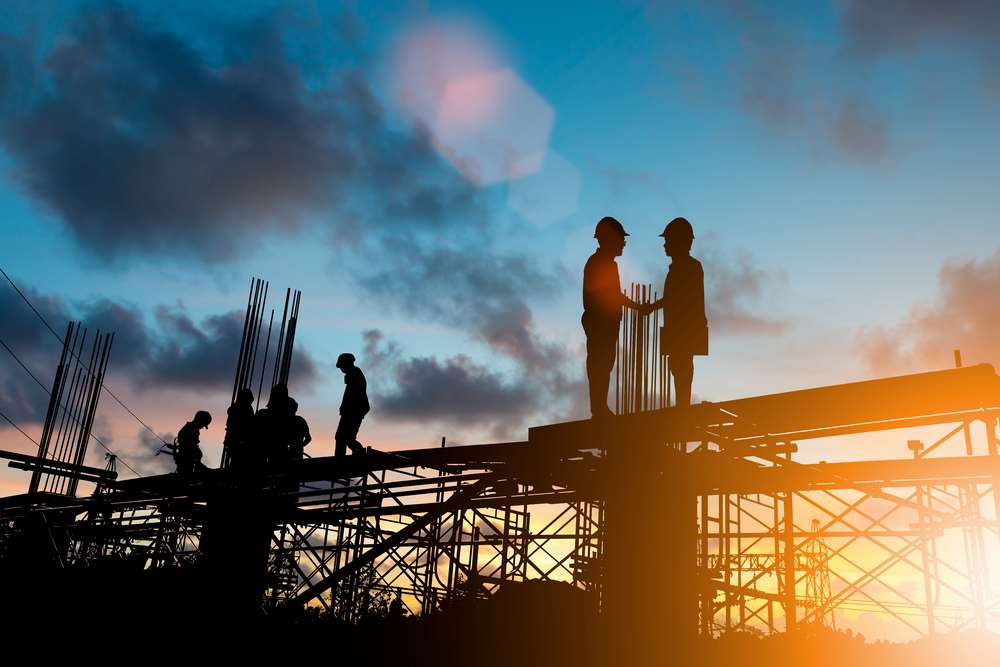Business
Are you future ready?
Published : 6 years ago, on
The 360 service approach to providing a bespoke end-to-end suite of services, setting new parameters of excellence.
Words by Ujjwal Goel, Managing Director of Teraciel Group
Each year we forecast how the labyrinth of technology advancements and consumer behaviour changes will redefine the Real Estate Contracting, Manufacturing, and Trading industries over the coming years. Consequently, we are always considering innovative ways to adapt and develop our offerings amid changing expectations of a demanding consumer.
At Teraciel Group we consider our work to be smart and future proof when investments in human and social capital, traditional infrastructure, and disruptive technologies fuel sustainable economic growth and a high quality of life, with wise management of natural resources, through participatory governance.
With the heightened need and focus on “cities of the future”, such as Dubai, the question we continually ask ourselves as contractors and owners of the built environment, is are our buildings and projects future ready? Are we deploying technology innovatively and effectively to prepare and respond to the rapidly changing ecosystem, whilst honouring the history and craftsmanship of the past?
The industry may believe that smart cities or cities of the future are unlikely to impact the existing built environment, or that the timing is too far out to consider seriously. However, some evolving trends are likely to impact the industry faster than expected. Growing government focus, rapid advances in technology, and innovative solutions to improve and define the landscape we live in should compel the industry to prepare and respond to the changes in the ecosystem. And in the words of New Corporation Founder, Rupert Murdoch: “The world is changing very fast. Big will not beat small anymore. It will be the fast beating the slow.”
As we take a closer look at the contracting industry we see in has largely grown throughout the years, but tends to follow primitive construction methods and techniques. In addressing these shortcomings and carving out a competitive positioning, we have sought to ensure our divisions stand head and shoulders above their contemporaries through an innovation-led approach to all of its processes. As seen with ANCA, an FFE Manufacturing company, its manufacturing setup is light years ahead of its competition in terms of infrastructure. For example, the leather machines used by ANCA, are the same that are used for Ferrari. It not only exceeds the quality standards of today but also provides products that stand the test of time. We are also aware that the contracting industry in the future will have to become less reliant on human manpower and more on machines. As “early-adopters”, we equip the team with technologies that are not prevalent in the industry and are still at research and development stages. This, therefore, allows for greater efficiency per person and also enables us to accelerate work schedules.
With these thoughts in mind, we identify the drive of construction innovation and client personalisation as a key theme. This is an outlook that we believe industry owners should consider integral to their business strategy. As a company, our mission is always to provide integrated service solutions aimed at “Empowering Prosperity”, by redefining the modus operandi of the industries it works in. We believe that for companies to “future proof” their growth, a 360 offering of bespoke end-to-end suite of services will be imperative.
Switching our attention to the competition, we can see that for clients it has never been tighter. Clients today have a growing desire for personalisation, with consumption patterns tilting toward more customised goods and services. In the 2017 State of Personalization Report, it explores how personalisation impacts consumer choices, where consumers demand tailored experiences, what happens when retailers live up to expectations, and the effects of falling behind. Consumers expect highly personalised experiences from companies and are willing to spend more money when entities deliver targeted recommendations. Despite those expectations, however, a majority of consumers are disappointed with the ongoing lack of personalisation in their consumer experiences. As documented in the report on average 71% express some level of frustration when their experience is impersonal. The proliferation of new devices and the rapidly evolving technology landscape has led to a “personalisation gap” in the customer experience, and as consumers’ expectations rise, many companies struggle to meet them.
It is through new technologies, access to world-renowned craftsmanship, and integrated end-to-end solutions that Teraciel Group address and enable customisation requirements. As seen at La Sorogeeka Interiors, the engineering team has taken into account lessons from its three decades of experience and provide solutions to address future issues, including providing processes, such as its stone installation and the tools/ equipment used, that are impossible to find in the region, and have them imported from the US and Western Europe.
One size does not fit all. Knowing what your customers want and need can often be the one thing that solidifies their decision to do business with you. On the other hand, if you don’t know your customer, that could be the one thing that drives them into the arms of your competitor.
For more information, please visit www.teraciel.com.

-
Finance3 days ago
Phantom Wallet Integrates Sui
-
Banking4 days ago
Global billionaire wealth leaps, fueled by US gains, UBS says
-
Finance3 days ago
UK firms flag over $1.4 billion in labour costs from increase in national insurance, wages
-
Banking4 days ago
Italy and African Development Bank sign $420 million co-financing deal







